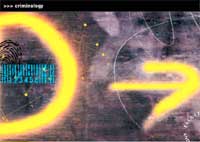|
||||||||||||||||||||||||||||||||||||||||||||||||
| Penology - CRIM2028 | ||||||||||||||||||||||||||||||||||||||||||||||||

Description
Module: "Sentencing and punishment" This elective examines the the theory and practice of sentencing in the NSW courts and develops some of the themes relating to the criminal justice process introduced in CRIM2020 and CRIM2021. Topics covered include: theories of punishment and sentencing; regulating sentencing discretion; sentencing law; penalties; sentencing indigenous offenders; the role of restorative justice; and public opinion, the media and the politics of sentencing. Module: "Prison and Punishment: introduction to Penology" (Semester 2, 2011) This elective provides an introduction to penology. It begins by considering the growing use of prisons across the developed world and is then constructed around three main themes: theorising the prison; perspectives for reform; and contemporary issues in Australian penal policy. The elective is designed to give students some insight into the frameworks used by social theorists to analyse imprisonment, with a view to examining contemporary issues such as ‘supermax’ prisons, deaths in custody, immigration detention, the civil rights of prisoners and prison privatisation. The experience of the New South Wales prison system following the 1978 Royal Commission into New South Wales prisons provides an immediate context for studying such issues and an opportunity to examine the complexities and limitations of prison reform. The course intends to focus on the wider sociological implications of imprisonment and to introduce students to the various perspectives on punishment and the prison system offered by social theorists. It is designed to encourage both a basic understanding of the core literature and the ability to apply different penological perspectives to original research. A student who has successfully completed this course should be able to: understand some of the main themes within penology; understand the relationship of penology to criminology; appreciate the wider instrumental role of the prison in the criminal justice process; and contribute to more informed policy debate about prisons and punishment. Module: "Explaining Punishment" Provides a theoretical and policy-oriented consideration of how and why we punish criminal offending, particularly through the use of imprisonment. The course has an inter-disciplinary approach utilising law, history, sociology, and criminology. Considers various theoretical contributions to our understanding of punishment including the work of Durkheim, Foucault, Weber, Marxist approaches, and David Garland. Also considers contemporary law and public policy issues, including juvenile detention, women in prison, the imprisonment of ethnic and racial minorities, inequality and imprisonment, privatisation, torture, deaths in custody, the death penalty, and the impact of law and order policies on punishment. |
||||||||||||||||||||||||||||||||||||||||||||||||


